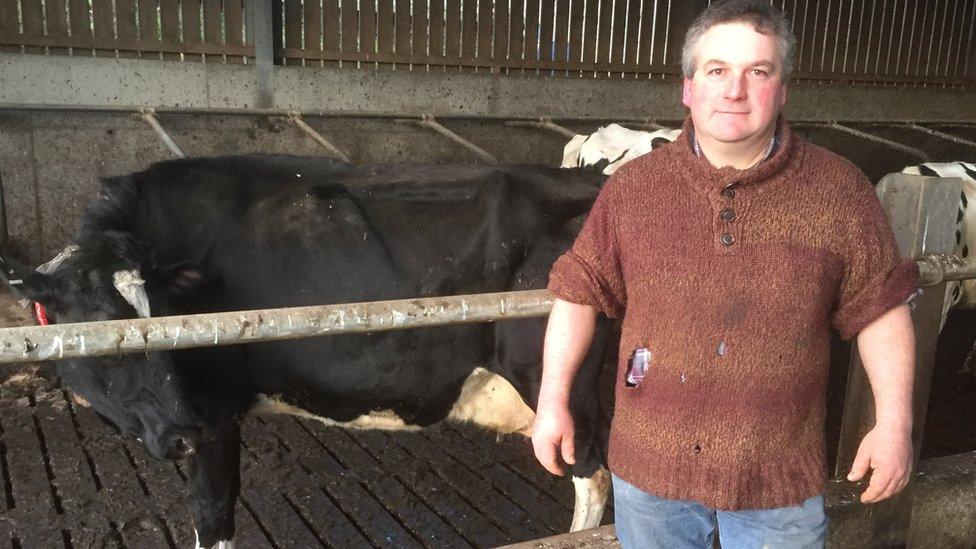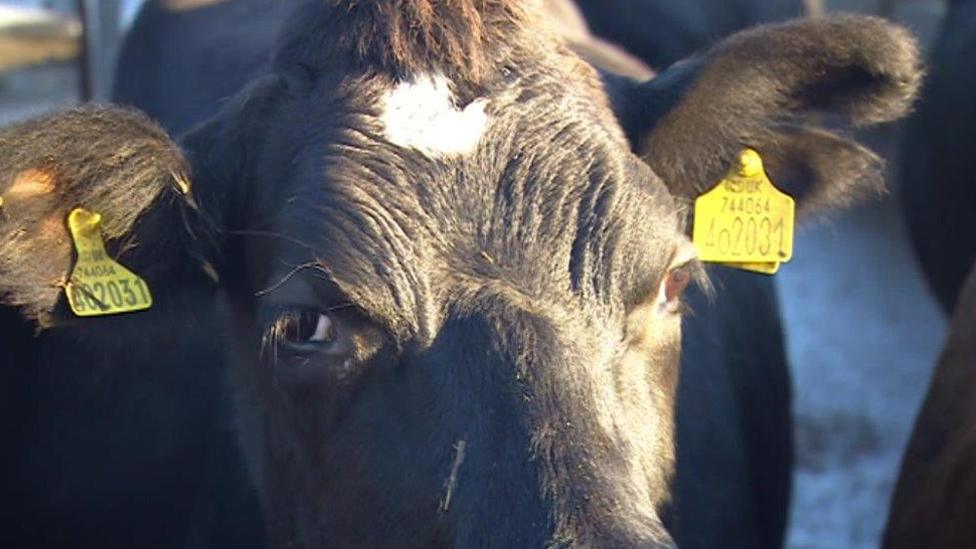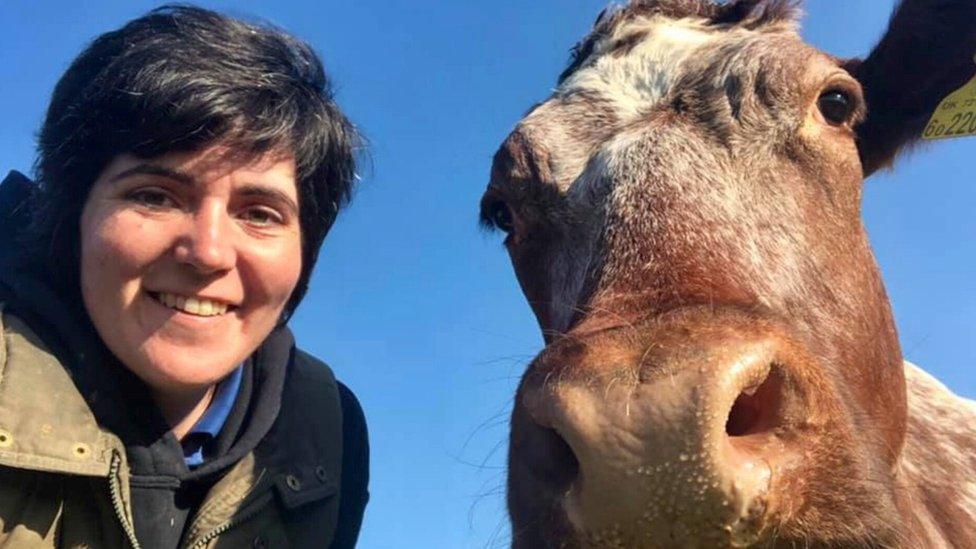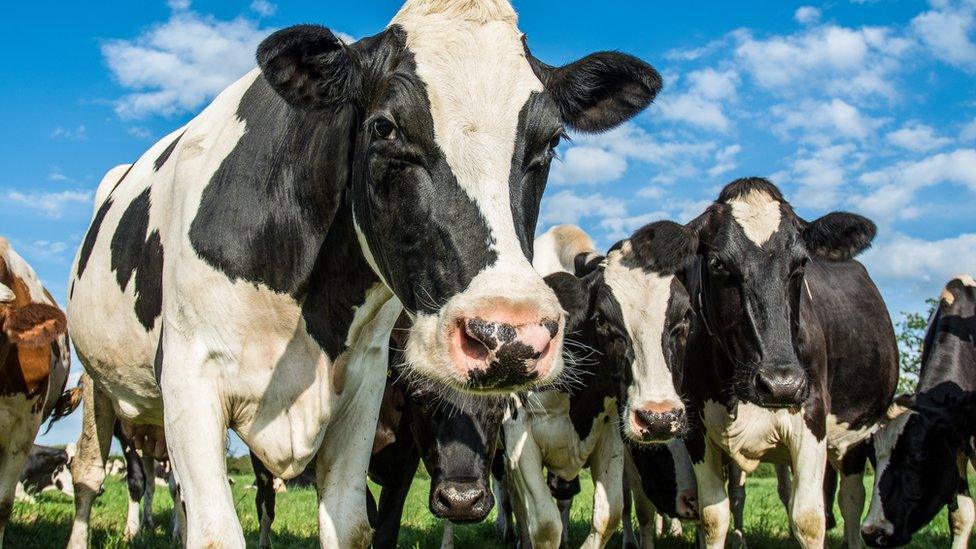Bovine TB: Farm 'losses have been horrendous'
- Published

Fifteen of Keith Pugh's cows were found clear of the disease after a second test
There have been calls for a review of the Welsh Government's policy to eradicate bovine TB, amid concern healthy animals are being slaughtered.
New figures show that 12,742 cows were slaughtered in the 12 months to October - a 24% increase on the previous year.
One vet said the "losses have been horrendous" on some farms, and a dairy farmer said the policy was not working.
The Welsh Government said its TB eradication programme was "built on a sound evidence base".
Keith Pugh's dairy farm at Pentregat, near Llandysul, Ceredigion, has been under "enhanced measures" since April 2019, with 72 cows culled, leaving him 51 to milk.
Enhanced measures means farms with a chronic problem for more than 18 months have their cows tested more frequently.
All animals with inconclusive results are removed, as well as those testing positive.
Mr Pugh and his vet Robert Price-Jones requested a second blood test on inconclusive results in December.
They said that of the 16 animals that were initially inconclusive, 15 were clear of the disease on the second test.
Mr Price-Jones has called for more thorough testing for inconclusive results, to reduce the number of healthy animals being slaughtered.
"Welsh Government has moved somewhat on the policy, but not as far as some vets would have liked, including myself," he said.
"I would like to see all severe inconclusive reactors to be retested, but only around half will get an opportunity to be retested.
"I think we would see a dramatic reduction in the number of animals being removed if that was to be done across the board."
Mr Pugh agreed with need for a review, telling Newyddion 9: "It needs to happen immediately. There's clear evidence it's not working."
Paul Davies, leader of the Welsh Conservatives in the assembly, said that the Welsh Government was "failing to tackle the disease" and that it was having an "enormous impact on farmers".
"We need to tackle the disease holistically, in the wildlife population as well," he said.
Badgers and cattle share similar strains of TB and experts have said there is cross-infection, though the extent of it and the path of disease transfer is debated.
In England, results from badger culls have been mixed.
A Welsh Government spokesman said it had now "fine-tuned" its approach.
"Since January 1 all such cattle receive supplementary testing with alternative tests in order to reduce the number slaughtered, whilst ensuring truly infected cattle are identified and removed without delay.
"To ensure this approach is proportionate and deliverable, and understood by those affected, we have been working in close collaboration with private vets as we develop this revised protocol.
"We continually assess the badger cull policy being implemented in England. The evidence is inconclusive and, taken as a whole, does not make a strong case for culling badgers as a means of reducing TB in cattle."
- Published24 December 2019

- Published18 July 2019

- Published30 April 2019
